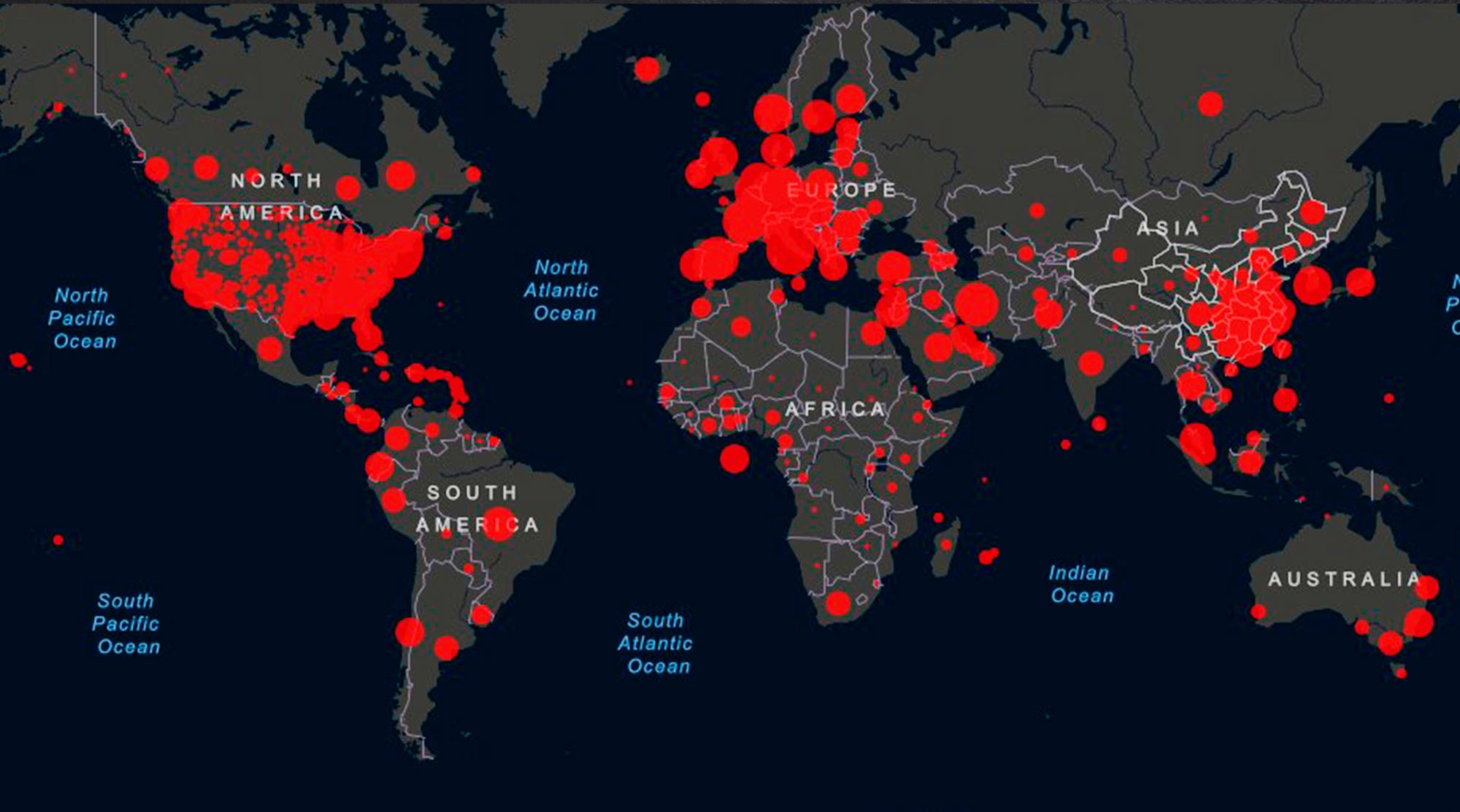Milwaukee Man Pleads Guilty to Bank Fraud for COVID-19 Relief Fraudulent Scheme
A Milwaukee man has been indicted for taking part in a fraudulent scheme that was put together to defraud the government and illegally obtain proceeds from the Paycheck Protection Program, as stated in an announcement made by Acting U.S. Attorney Richard G. Frohling of the Eastern District of Wisconsin on April 12, 2021. The defendant was previously alleged to have submitted falsified documents and a fraudulent loan application to the Paycheck Protection Program, with the goal of swindling American taxpayers out of millions of dollars in collaboration with several other men. The defendant has just recently pleaded guilty to bank fraud and has confessed to taking part in a scheme, wherein he unlawfully obtained more than $600,000 in Paycheck Protection Program proceeds that were meant for genuinely small businesses and organizations that are suffering the economic effects brought to the nation by the global COVID-19 pandemic. Also noted in the announcement, the defendant faces a maximum penalty of up to 30 years of prison term and is scheduled to be sentenced by a federal district court judge on July 14, 2021. The Paycheck Protection Program is an initiative under the Coronavirus Aid, Relief, and Economic Security (CARES) Act that has an ultimate goal of alleviating the distress on small businesses and organizations and helping millions of American citizens by providing financial assistance for job retention through the pandemic. The Paycheck Protection Program is fully guaranteed by the United States Small Business Administration.
Table of Contents
- Announcement by Acting U.S. Attorney Frohling
- Defendant and Details of the Case
- The October 2020 Criminal Case Involving the Defendant
- Charges
- The CARES Act and the Paycheck Protection Program
- Obtaining PPP Loan
- Details on the PPP Loan Proceeds
- Interim Chief Federal Law Enforcement Official for the Eastern District of Wisconsin
- Investigation and Prosecution
- The Justice Department’s Fraud Section and COVID-19 Fraud Cases
- For More Information
Announcement by Acting U.S. Attorney Frohling
According to an announcement made by Acting U.S. Attorney Richard G. Frohling on April 12, 2021, a Wisconsin man has pleaded guilty to charges for having taken part in a fraudulent scheme devised to illegally obtain more than $600,000 in Paycheck Protection Program (PPP) loans, which are guaranteed by the United States Small Business Administration under the Coronavirus Aid, Relief, and Economic Security (CARES) Act.
Defendant and Details of the Case
Stephen Smith, 24, of Milwaukee, has confessed to having contributed to unlawfully obtaining over $600,000 in Paycheck Protection Program funds by means of submitting fraudulent PPP loan applications to a federally insured financial institution that is taking part in the Paycheck Protection Program. The defendant’s plea agreement states that Smith has put forward loan applications that contained a significant number of false and misleading statements, particularly on declarations of the companies’ respective payroll expenses. The court documents further state that the defendant was in conspiracy with several other individuals, who were then responsible for sending the defendant portions of the illegally obtained PPP funds days after receiving the loans. It was also reported that Smith had used the fraudulently acquired PPP proceeds for personal expenses.
The October 2020 Criminal Case Involving the Defendant
A release in October of 2020 announced that five men had been accused in a sophisticated conspiracy with the intention to steal over $1 million from the federal taxpayers by tricking the Paycheck Protection Program and submitting fraudulent loan applications. Among the five indicted men is Stephen Smith – the aforementioned defendant, who had recently pleaded guilty. Together with the defendant are his co-conspirators – Thomas E. Smith of Pewaukee; Robert Hamilton, from Milwaukee; Samuel Davis and Jonathan Henley, both from Chicago. The defendants have been accused of taking advantage of the Paycheck Protection Program and defrauding the government out of millions of loan funds, which are meant to aid millions of American citizens and small businesses through the economic crisis which the United States is under, as brought upon by the global COVID-19 pandemic. The criminal complaint noted that the five defendants had filed fraudulent PPP loan applications under names of businesses that were no longer in business for a staff of over 160 workers that, in fact, did not exist as well. Moreover, it was reported that the defendants had made several other false claims regarding the operations of the businesses in order to inflate the amount of Paycheck Protection Program loans they were to receive.
Charges
Stephen Smith has pleaded guilty to bank fraud and is scheduled to be sentenced on July 14, 2021. A federal district court judge shall determine the number of years to his sentence, with a maximum penalty of up to 30 years prison term, based on the U.S. Sentencing Guideline and other statutory factors.
The CARES Act and the Paycheck Protection Program
The Paycheck Protection Program is an initiative developed with the purpose of allowing qualifying small business and other eligible organizations to obtain loans that are intended as financial assistance to millions of American citizens that are suffering the effects of the economic crisis. The goals of the Paycheck Protection Program are made in line with the objectives of the Coronavirus Aid Relief and Economic Securities (CARES) Act – a federal law that has been enacted previously, on March 29, 2020, to which the Paycheck Protection Program is subject to. These initiatives were built to provide emergency funding for small businesses and aid numerous citizens of the United States in the form of COVID-19 Relief. Amounting to about $2.2 trillion, the CARES Act provides a source of relief to small businesses qualified under the Paycheck Protection Program. The first installment arranged for the PPP under the CARES Act constitutes about $349 billion in forgivable loans.
On top of that, an authorization of up to $300 billion in the second installment was made by Congress in April of 2020 to add to the funds available for small businesses. Eight months were succeeding this second installment. In December of 2020, Congress authorized yet another $248 billion additional funding for small businesses to utilize for job retention, among other certain permissible expenses. Therefore, the Paycheck Protection Program has received over $900 billion in financings under the CARES Act.
Obtaining PPP Loan
A qualifying small business may be able to receive proceeds from the Paycheck Protection Program by submitting an application to a participating lender. The PPP application documents must be signed and rendered by an authorized representative of the small business, who is also expected to acknowledge the rules of the Paycheck Protection Program, as well as submit certain affirmative documents that certify the arrangements under the Paycheck Protection Program. In order to be considered eligible for the PPP, the claimant must submit documents that include statements of average monthly payroll expenses, and a number of employees of the small business, among other necessary details that are required to determine the eligibility of the organization and the amount of loan proceeds the entity is entitled to receive under the Paycheck Protection Program. After the small business has submitted the PPP loan application, a participating lender will subsequently confirm the eligibility of the applicant and will fund the Paycheck Protection Program loan using its own monies once confirmed. These loans are fully guaranteed by the Small Business Administration, as they are in charge of processing the PPP loan proceeds that are being initially funded by the participating financial institutions. All information from the application, including details about the borrower, the total amount of loan proceed acquired, as well as the listed number of employees, are all kept and handed over by the participating lenders to the Small Business Administration through the course of processing the Paycheck Protection Program loan.
Details on the PPP Loan Proceeds
All of the Paycheck Protection Program loans that are received by qualifying small businesses or organizations are subject to maturity of two years and an interest rate of one percent. There are cases in which a claimant may be entitled to have their PPP loan be considered entirely forgivable, in which case the recipient must have used the Paycheck Protection Program proceeds strictly on interest on mortgages, payroll costs, rent, utilities, and on other matters that are specified under the list of certain permissible expenses accepted under the PPP. Moreover, it is necessary that the recipient utilized at least 60% percent of the Paycheck Protection Program loan on payroll expenses and have the whole of the PPP proceeds be used within a set period of time for the PPP loan to be regarded as entirely forgivable. Suppose the Paycheck Protection Program beneficiaries are ineligible to have their PPP loans be 100% forgivable. In that case, the loans will be subjected to the two years maturity and one percent interest rate.
Interim Chief Federal Law Enforcement Official for the Eastern District of Wisconsin
Acting U.S. Attorney Richard G. Frohling of the Eastern District of Wisconsin announced the case, along with several partner law enforcement officials, including Acting Assistant Attorney General Nicholas L. McQuaid of the Criminal Division of the Justice Department; Special Agent in Charge Sharon Johnson of the Office of Inspector General (SBA-OIG) Central Region – Small Business Administration; Special Agent in Charge Sharon Johnson of the Office of Inspector General (SBA-OIG) Central Region – Small Business Administration; Special Agent in Charge Robert E. Hughes of the FBI’s Milwaukee Field Office; Special Agent in Charge John Crawford of the Office of Inspector General (FDIC-OIG) – Federal Deposit Insurance Corporation; and Acting Special Agent in Charge Tamera D. Cantu of the IRS Criminal Investigation (IRS-CI) Chicago Field Office.
Richard G. Frohling is the interim Chief Federal Law Enforcement Official for the United States Attorney’s Office for the Eastern District of Wisconsin. With over 20 years of providing exceptional service in the Office, Acting U.S. Attorney Frohling now holds the highest position in the United States Attorney’s Office for the Eastern District of Wisconsin and is responsible for serving and protecting the 28 counties within the jurisdiction of the district. Furthermore, interim Top Federal Prosecutor Frohling is in charge of bringing justice to the 3.3 million residents of the district through the management and supervising of the 80 staff in the Office, consisting of talented and dedicated Assistant U.S. Attorneys and support personnel. Acting U.S. Attorney Richard G. Frohling was appointed into the position by virtue of the Federal Vacancies Reform Act, subsequent to the departure of former U.S. Attorney Matthew D. Krueger, who announced his resignation on February 11, 2021, two days following the notification delivered by Acting U.S. Attorney General Monty Wilkinson regarding the request of President-elect Joe Biden for the remaining 55 Trump-appointed U.S. Attorneys to vacate their posts. Richard G. Frohling officially took over in the Office of the United States Attorney for the Eastern District of Wisconsin on February 21, 2021, and is to remain in the position until 300 days after his appointment or until such time that a new U.S. Attorney for the Eastern District of Wisconsin has been appointed and confirmed by the Biden Administration.
Investigation and Prosecution
The case of Stephen Smith was investigated by the SBA-OIG, FBI, FDIC-OIG, and IRS-CI. It was prosecuted by the Justice Department’s Criminal Division’s Fraud Section Trial Attorneys Laura Connelly and Leslie S. Garthwaite, along with an Assistant U.S. Attorney, Stephen Ingraham of the Office of the United States Attorney for the Eastern District of Wisconsin.
The Justice Department’s Fraud Section and COVID-19 Fraud Cases
Prosecution of fraud schemes involving the exploitation of the CARES Act is being led by the Fraud Section of the Justice Department. Through the past year that the Coronavirus Aid, Relief, and Economic Security (CARES) Act has been made effective and passed as a law, the attorneys of the Fraud Section has already prosecuted over 100 defendants in more than 70 criminal cases of fraud, attacking the schemes that defrauded the COVID-19 Relief programs. In addition, the Fraud Section of the Justice Department has now seized over $65 million in cash proceeds, all of which have been derived from illegally obtaining Paycheck Protection Program funds, and well as Economic Injury Disaster Relief Program (EIDL) resources. The Justice Department has also seized a significant number of real estate properties and luxury items purchased with the fraudulently obtained proceeds. Additional information regarding the cases investigated and prosecuted under the CARES Act may be accessed through https://www.justice.gov/criminal-fraud/cares-act-fraud.
For More Information
Individuals with additional information with regard to allegations of attempted fraud involving any of the COVID-19 Relief programs may report to the National Center for Disaster Fraud of the Justice Department via their Hotline at (866) 720-5721 or through the NCDF Web Complaint Form at https://www.justice.gov/disaster-fraud/ncdf-disaster-complaint-form. Read more about PPP fraud here. https://ppp.attorney/blog/



